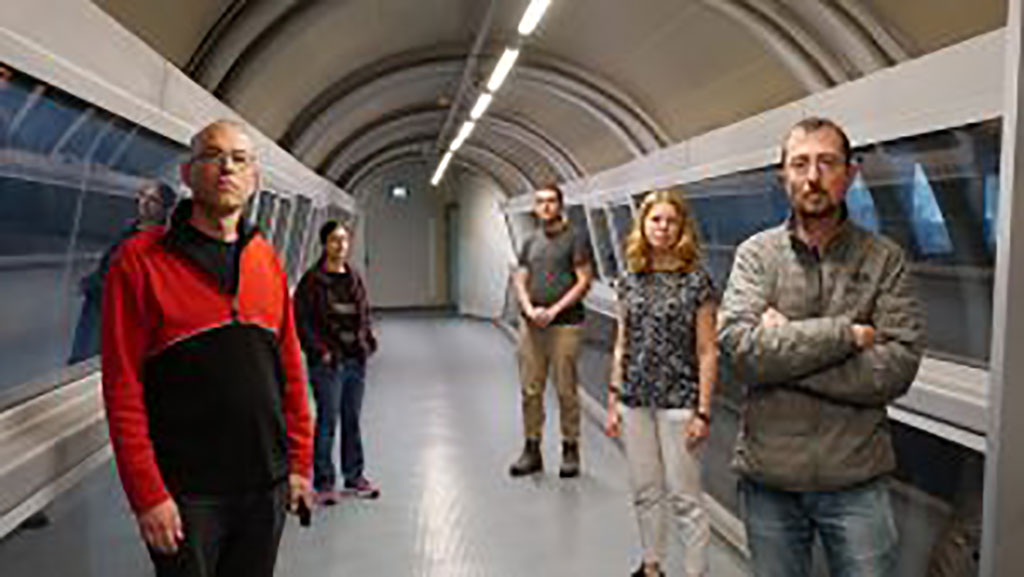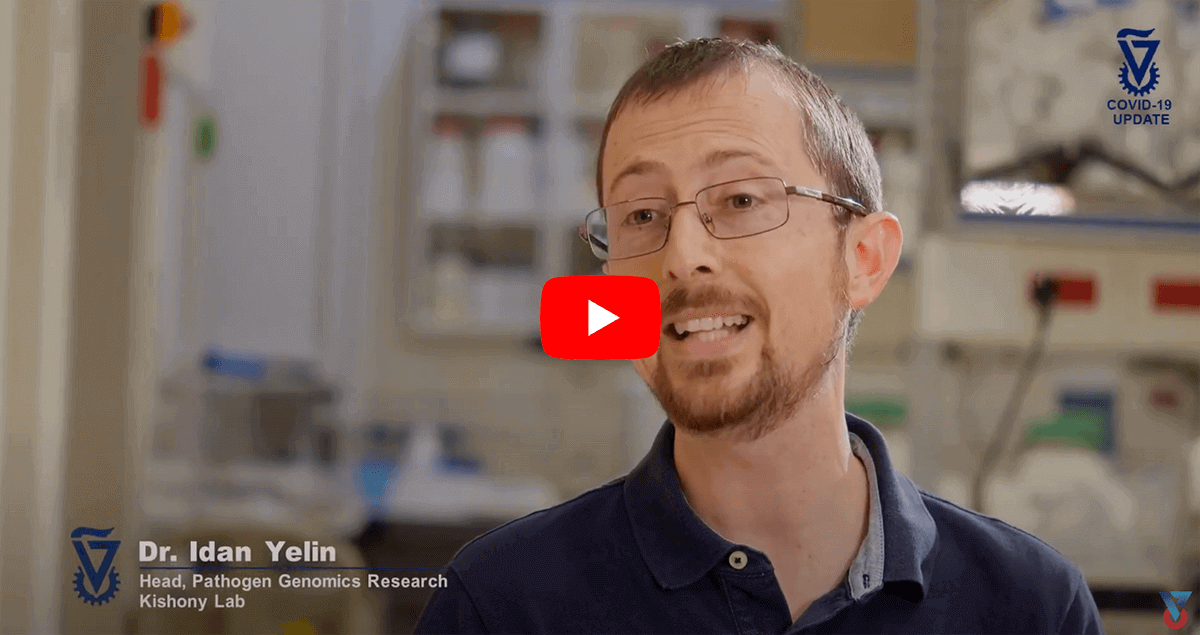
COVID Testing: From Bench to Bedside by Winter
 Image: Israeli researchers introduce pooling method for COVID-19 testing (Photo courtesy of Technion – Israel Institute of Technology)
Image: Israeli researchers introduce pooling method for COVID-19 testing (Photo courtesy of Technion – Israel Institute of Technology)
The best way to stop the spread of the coronavirus is by identifying carriers and keeping them away from healthy people. That requires testing — and a lot of it.
Researchers at the Technion and Rambam Health Care Campus are undergoing a final validation of their “pooling” test, which would dramatically increase testing capacity and speed. They hope the test will be available for widespread use by winter, when people could be suffering from a second wave of coronavirus, or a combination of COVID-19 and the flu.
“In winter, a lot of people will have respiratory diseases and will really want to know if they have SARS or something else,” said Technion researcher Dr. Idan Yelin. “There are going to be a lot of people being tested — even more than now — and we will need this.”
The team is led by Technion Professor Roy Kishony, the Marilyn and Henry Taub Chair in Life Sciences, and the director of the Lorry I. Lokey Interdisciplinary Center for Life Sciences and Engineering.
The new method, announced in March, advances PCR molecular testing common for COVID-19 by analyzing dozens of people simultaneously. Samples from saliva or throat and nose swabs are grouped into one batch and undergo a single test. If the group comes back negative, no further testing is needed. Individual testing would only be necessary when the pool comes up positive. Pooling is most beneficial in communities with a relatively low incidence of coronavirus because fewer positive results would emerge.
Currently, Israel is screening an average of 25,000 people per day, and as of July 19, the U.S. was testing more than 750,000 people daily, according to Johns Hopkins University & Medicine. The pooling method would test more people rapidly — a requirement for allowing the economy to reopen. The new approach would also save on chemical reagents and other equipment that has been in short supply.
Israeli researchers have successfully tested a method, known as pooling, that enables simultaneous testing of dozens of samples and can dramatically increase the current COVID-19 testing capacity using existing available resources. Its implementation has the potential to greatly accelerate the rate of testing and detection of COVID-19 infected patients in the population. The trial was conducted jointly by researchers from Technion – Israel Institute of Technology (Haifa, Israel) and Rambam Health Care Campus (Haifa, Israel) with the support of the Ministry of Health.
Article by HospiMedica International staff writers published on www.hospimedica.com on Mar 24, 2020.
COVID-19 is diagnosed with PCR testing, which is common for virus monitoring and examines the presence of a unique genetic sequence of viruses in a sample taken from the patient. However, the test takes several hours and does not allow for monitoring of asymptomatic carriers in the population, which is vital to curb the epidemic, thus creating a bottleneck in identifying COVID-19 infected people.
“According to the new pooling approach that we have currently tested, molecular testing can be performed on a “combined sample,” taken from 32 or 64 patients. This way we can significantly accelerate the testing rate. Only in those rare cases, where the joint sample is found to be positive, will we conduct an individual test for each of the specific samples,” said Dr. Yuval Gefen, director of the Rambam Clinical Microbiology Laboratory.
“This is not a scientific breakthrough, but a demonstration of the effectivity of using the existing method and even the existing equipment to significantly increase the volume of samples tested per day. This is done by pooling multiple samples in a single test tube. Even when we conducted a joint examination of 64 samples in which only one was a positive carrier, the system identified that there was a positive sample,” said Prof. Roy Kishony, head of the research group in the Faculty of Biology at Technion. “Although there are some logistical challenges in implementing the method, we expect that it will greatly increase the volume of samples tested per day so that we can identify the asymptomatic carriers. This approach should reduce the chance of infection and flatten the infection curve.”
“This experiment that was conducted by Technion and Rambam researchers is complex, and under normal circumstances would take months. This is a remarkable example of the mobilization of an outstanding team in a time of crisis,” said Prof. Uri Sivan, President of the Technion. “The initial experiment was completed in less than four days. This achievement emphasizes the importance of the close relationship between Technion and Rambam and between medicine and engineering. Technion researchers have been enlisted in the war against the coronavirus and this is one of the many activities currently underway at Technion to combat the spread of the disease.”
“This collaboration between Technion and Rambam, for the benefit of all humanity, is just one example of many joint projects between the two institutions. These collaborations are designed to harness the multidisciplinary capabilities of Technion researchers for the advancement of medicine,” said Prof. Michael Halberthal, General Director of Rambam Health Care Campus.

